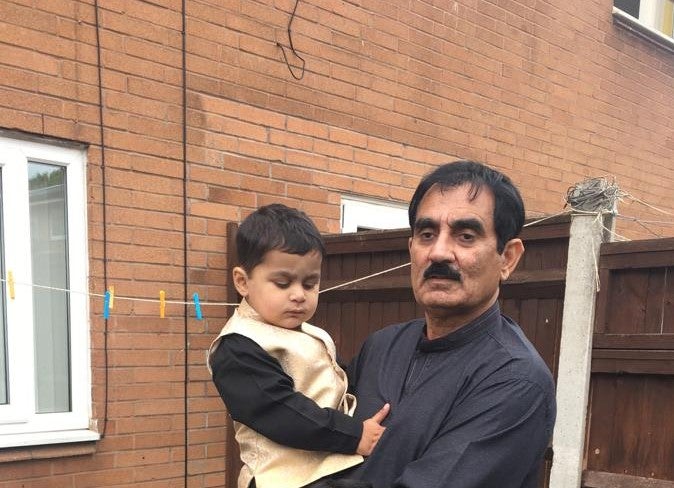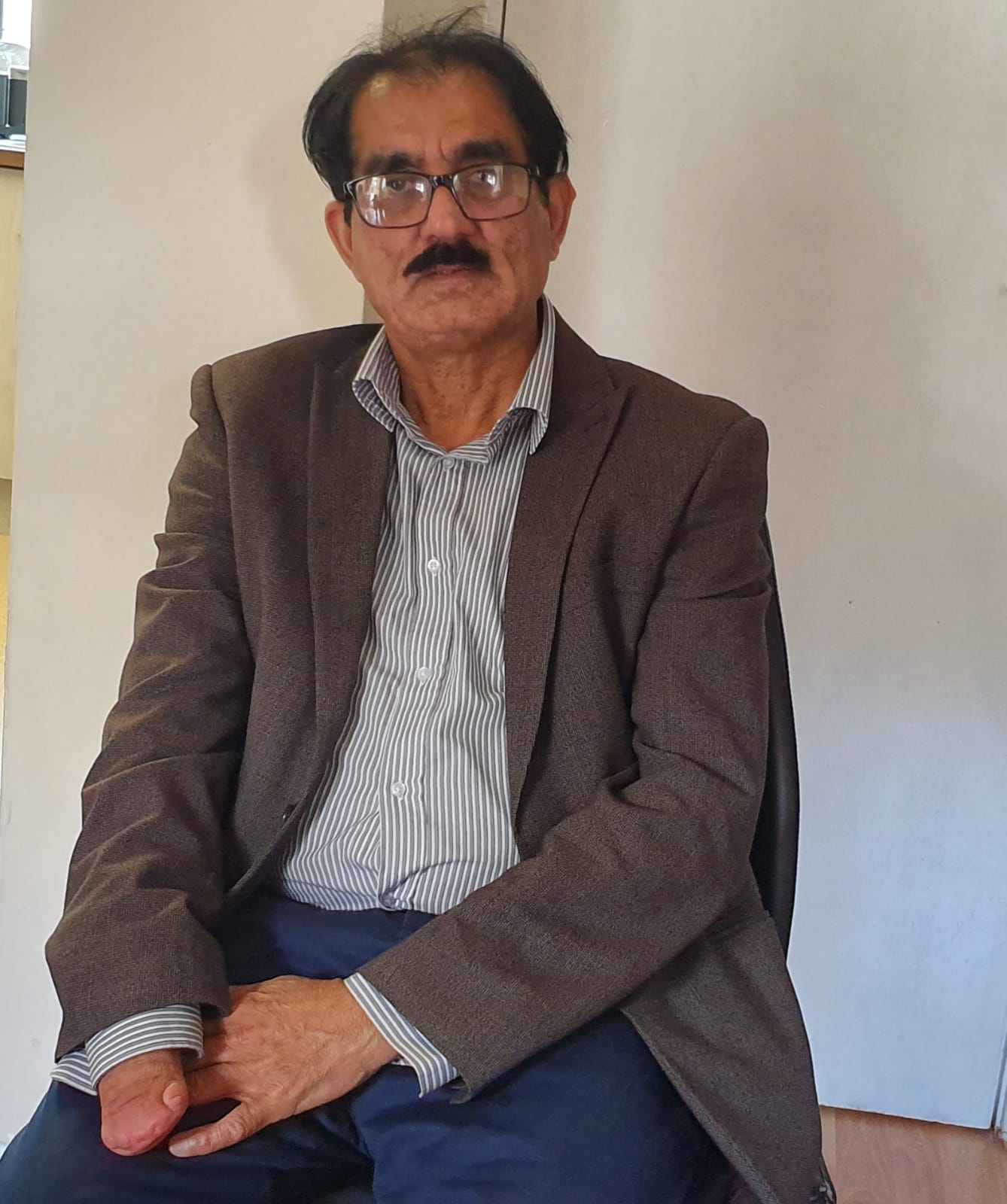'He was trying to cobble the money together': Vulnerable people facing 'extortionate' fees to apply for immigration status
Disabled refugees paying hundreds to settle status under newly outsourced system

Abdul Farooq thought applying for leave to remain in the UK would be straightforward. The 56-year-old Manchester resident had been granted refugee status five years earlier after fleeing religious persecution. Now he wanted to secure his right to remain in the country with his family.
When he logged onto the online UK visa system, however, he realised the process could be far more complex – and costly – than he thought.
The Pakistani national, who was born without his right hand, had been told he simply had to book an appointment to submit the relevant documents within six weeks. But he was informed by the website that the last available slot was in London, at a cost of £780.
Fearful of not completing the process in time, Abdul, who works in a petrol station shop and lives with his wife and teenage son, desperately began to ask friends whether they could lend him money to help him meet the cost before his deadline.
His son-in-law, Suhail Raja, soon realised what was happening and intervened. He tried to book an appointment for Abdul, but was met with the same issue. Free visa appointments are only available in six UK locations, and none of them had available slots. The only option given was to attend a “premium” appointment more than 200 miles away in Croydon.

“We were checking the website around 20 times a day. There were no free appointments,” says Suhail, 33. “The only available appointments were in London, the premium ones, where they were charging £780.
“Abdul was trying to cobble £800 together, but I said you shouldn’t be doing that. I phoned and was waiting for 65 minutes. They said they couldn’t do anything and that I needed to check just after midnight when new appointments are put on the system. We tried that many times and still had no luck.”
They resorted to going to their local MP, at which point the Home Office eventually responded by offering Abdul an appointment in Manchester for 17 July. But this falls after the deadline for his application to be submitted, so the family is worried it will be refused.
Abdul is one of many foreign nationals in the UK to have encountered problems when trying to submit immigration applications.
While visa applicants could previously go to their local post office to provide biometric data such as fingerprints, this is no longer an option under the Home Office’s privatised visa system, which was outsourced to French firm Sopra Steria last November.
They must now attend one of just six “core centres” across the country which offer a free service, or another 51 which charge fees starting from £60.
Solicitors say applicants had been unable to book free appointments due to a lack of availability on Sopra Steria’s website, with some forced to travel hundreds of miles or pay high fees in order to submit their applications on time.
Cross-party MPs and lawyers have demanded an independent investigation into the newly privatised visa system amid warnings it is putting legal migrants at risk of being “thrown into the hostile environment”.
In another case, a Sudanese refugee family in Newcastle is having to question whether or not they can apply for citizenship after encountering barriers in the new system.

The family of five, which includes three children – two severely disabled – is facing the choice of either paying £300 for an appointment in Newcastle, or travelling over 140 miles – with two disability buggies – to attend a free one in Manchester.
Their legal advisor, Claire Hurst, from the Law Centre, said she had tried to find guidance on how to apply for disability exemptions, but to no avail.
“They haven’t applied yet because they were going to borrow the money to be able to apply from family and friends anyway, and they don’t have that kind of disposable income – they are recently settled refugees,” she added. “So they’re having to rethink whether they should go ahead. Or whether they should stagger the applications.”
Ms Hurst said that without citizenship the family, who have been in the UK for six years, is unable to travel abroad, meaning they can’t visit family, and that it could make life more complicated for the children, one of whom was born in Britain.
“Under this new system, people are having to question whether or not to apply for things they have every right to,” she added.
In another case, a seriously ill man in Edinburgh submitted his visa application and booked an free appointment in Glasgow, but due to ill health was unable to make the journey, so had to cancel it.
He and his wife could not find a way to contact the Home Office to ask whether they could get a disability exemption.
Their solicitor, John Vassiliou of McGill & Co Solicitors, said the only option was to involve his local MP because there was “no other means of initiating meaningful dialogue with the Home Office about difficult issues”.
He said: “The Home Office have worked hard over the last few years to cut off all points of communication with the outside world. Their customer service contact centre is worse than useless. The call centre staff are simply unable to assist in any meaningful way with complex issues.
“There is no facility for lawyers to initiate direct contact with immigration officers. If you need to get something done these days you very often have to involve the MP.”
The issue was resolved after the local MP contacted the Home Office, but it required “a very large amount of time and stress”.
“At one point they were in discussions with the hospital about hiring a private ambulance to take him to Glasgow under medical supervision just so he could give his biometrics,” said Mr Vassiliou.
“These are not the type of conversations and stresses that people should be enduring while they are being treated in their hospital beds.”
Sopra Steria apologised for the “inconvenience” caused to Mr Farooq, saying it had experienced a surge in demand and subsequently increased capacity.
A Home Office spokesperson said: “We are sorry for any inconvenience caused to those unable to access appointments, which have been subject to a higher than expected demand.”
They added that the department was working closely with Sopra Steria to ensure additional appointments are made available at existing sites across the UK.
Join our commenting forum
Join thought-provoking conversations, follow other Independent readers and see their replies
Comments
Bookmark popover
Removed from bookmarks